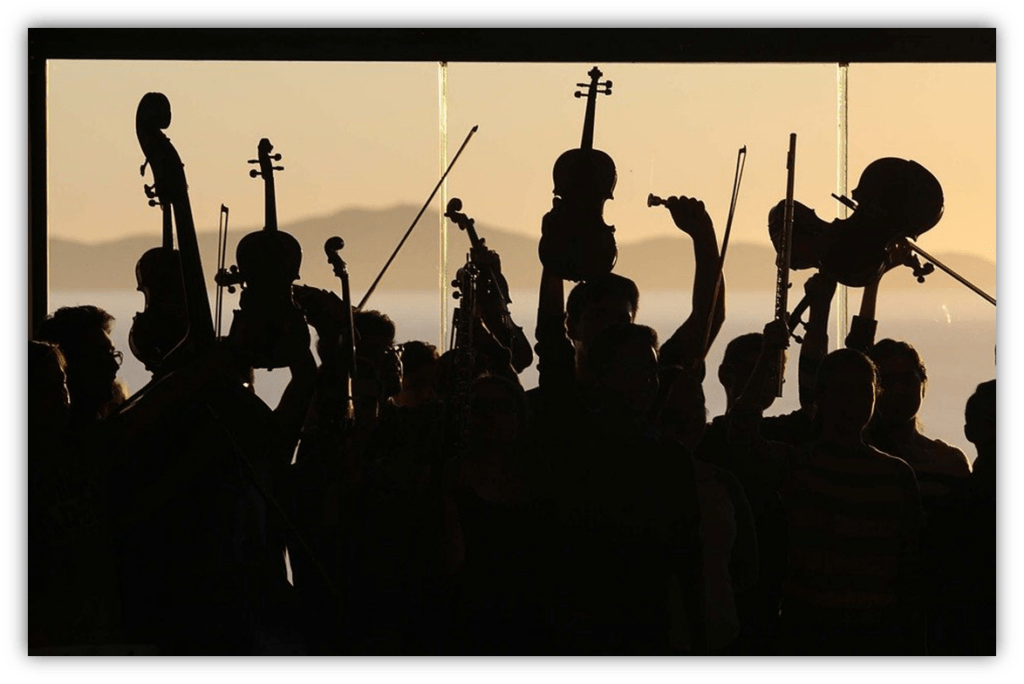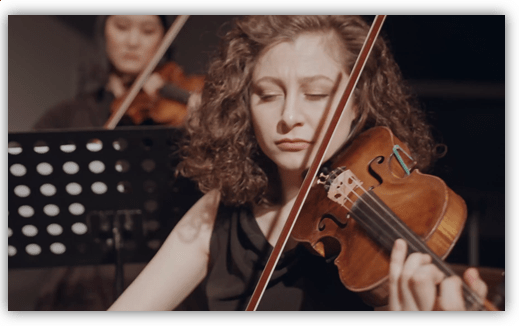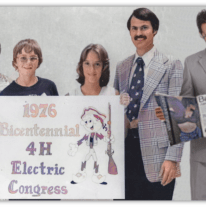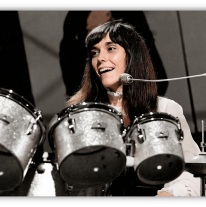How many of you out there are into classical music?
Of course, how you answer may depend on what is meant by “into,” and maybe what is meant by “classical” music.
But regardless of the particulars, it does seem that fewer and fewer people across generations are taking the time to learn about, listen to, or enjoy formal compositions in the Western classical tradition.
Now, I can only speak as an American who’s lived most of his life in America. Certainly in Japan, people my age seem to have a broad basic knowledge and interest in the great composers of yesteryear. And that’s probably true of various other nations. However, in America, classical music tends to be mentally filed away as:
1. Movie soundtrack filler
2. Music to play in the background as you study or work
3. Pretentious crap that elites pretend to like to seem better than you
4. A field of music that’s way too large, too complicated, and daunting to really dig into beyond a few famous snippets.
As for me, I fell into Category 4 for most of my life.
My minimal education in some classical works in elementary school had some profound emotional effects on me: the Aquarium theme from Carnival of the Animals suggested a gorgeous underwater paradise that I would visit in my daydreams; the wolf theme from Peter and the Wolf would sometimes haunt me as I tried to sleep at night. Most significantly, my family’s love of playing Handel’s Messiah for the Christmas season was a rare chance to relish a classical work in its entirety. But by and large my “education” was limited to incidental exposure as I watched movies with my family.
Then, when puberty came knocking, I got more and more into the edgiest sounds on the radio, and rebellion became the priority. First it was hard rock like Metallica, then it was Nirvana. Then it was Green Day and the Flaming Lips. Soon alternative rock radio was, like, for poseurs, man, and so I went deep into punk, goth, industrial, and lots of other genres that were musically and aesthetically quite removed from the compositions of yore. Take off your powdered wigs, people, and break out the Manic Panic!
But then college happened.
My hormones mellowed out some, but my curiosity never tired. As I soaked up more and more knowledge and culture, my deep love of punk mutated into a broader appreciation of outsider art and transgressive, confrontational music. Perhaps inevitably, some of that music turned out to be classical. The modern stuff at least.
It’s really not that far of a leap to go from the industrial clangs of Einsturzende Neubauten to the orchestral works of Krzysztof Penderecki. Both of them deal in oppressive, hellish soundscapes with lots of dissonance. And it’s not that far of a leap to go from the meticulous sound collages of Matmos to the musique concrete innovations of Pierre Henry. They both sound really interesting on headphones. So yay. I finally had a few CDs of modern composers in my collection, and I even liked a few of them.
In college, one huge source of musical education for me was my time spent working at Tower Records.

And I loved working the Classical room register, because it gave me tons of down time to read for my classes. But one thing this time made clear to me was how damn hard it was to determine what was a worthwhile classical CD, and what was not. For most popular music today, all you need to know is an artist name and an album title. Wanna try the Beach Boys? Get Pet Sounds; hold off on Little Deuce Coupe unless you become an uber-fan. Wanna try Outkast? Aquemini is when their weirdness really starts to come out; if you want more straightforward hip hop, get ATLiens. Sometimes you pay attention to the extra tracks and the audio quality of remastered re-releases, but it’s generally very easy to dig into this stuff.
With classical music, the equation is far more complicated. You have to consider the composer, the specific musical work, the conductor and the players, and the specific recorded performance.
Where to start? Even for the stuff I thought I might be interested in, like Stockhausen’s noisy works, I found that certain CDs I purchased turned out to be boring, or just sounded terrible. And I wasn’t sure if this was the composer’s fault, the conductor, or the recording engineer. I would sometimes ask customers in the Classical room for recommendations, but their answers made me more uncertain: some praised the sound quality of specific label releases, while others dismissed the same releases as inferior. If an album happened to be featured in a listening station I could explore before purchasing, but more often than not those stations were dedicated to jazz and vocal albums rather than classical. Remaining confused and cautious was clearly the more sensible option for me, and so I mostly stuck with my “simple tunes for simple people” ethos for the entirety of my time at Tower.

It was in graduate school when things really changed. But not because of my school situation; it was more the right time, technologically speaking. This was 2007, and online music options were starting to take off, but thankfully they could still be a bit experimental. I started to pay for a membership for eMusic, a site that allowed a monthly allotment of MP3 downloads per month. An interesting quirk of the site at the time was that downloading credit was not at all weighted by a track’s length. So a 60-minute track would count the same as a 30-second track. Obviously, I avoided the punk and hardcore tunes on this site, and skewed heavily toward longer tracks to get the most for my money.
And that’s when I decided to take some chances on classical albums, albeit ones that were condensed into just a few tracks to download. I certainly listened to samples before jumping into a purchase (another great innovation of the digital age), but by and large I was okay with taking some risks, since the cost of making a mistake had been greatly reduced.
As I collected more and listened more (and later streamed on Youtube), my understanding grew and grew. One of the first composers I tried to get into was Gustav Mahler, upon a passing recommendation from my roommate’s friend. The albums I got from eMusic led me to believe that I didn’t care for Mahler—too ostentatious, not enough raw emotion. I later learned that I simply didn’t care for that particular conductor’s take on Mahler. But I loved what Leonard Bernstein did with the same works, particularly Bernstein’s earlier recordings of them. And I just recently attended a live performance of Mahler’s 2nd Symphony that was downright raucous. So much raw emotion!
Despite my initiation into classical via modernist noise, in grad school I leaned most heavily into Baroque sounds, because it was the perfect salve for stressful times. But I also got a better feel for the Classical era, the Romantic, and even the best Modernist stuff. In between my formal academic studies in psychology, I listened and learned about what musical pieces I liked; what performances I preferred; what various composers brought to the table, and what stylistic trends marked the larger eras of composition. This informal lesson was a long time coming, but it finally came!
Although the ubiquity of online music streaming today does make me worry about the availability of obscure releases going forward, in general the format offers the perfect opportunity for curious-but-cautious listeners to explore a large body of sounds that they know nothing about. If you are currently daunted by the sheer vastness of classical compositions out there, not to mention the complexity of variables that affect how good or bad a recorded work sounds to you, there has never been a better time to just dig in for a while, and learn about what you prefer.
There is also no better way to enjoy a work than to hear it performed live in a well designed concert hall. I’m no audiophile, but the difference between live classical and recorded really is like night and day.
Even the best recording will flatten out a work’s various musical components, which in a concert setting sound consistently vibrant, no one sound ever dominating the others. So that’s a viable Step One for the curious as well; go to a show and see what you think!
Then again, it’s never going to be for everyone, except maybe in the context of a movie soundtrack. Even there, I’m impressed that these old works still have the power to move people. Heck, movie audiences are even being moved by modernist noise, even if they don’t even realize it.
And that’s pretty neat.
Let the author know that you appreciated their article with a “heart” upvote!





Thanks for posting this, MT! And as always, your formatting and hyperlinking adds so much.
As to the point about movies and modernist music, I found this great short video about The Shining soundtrack shortly after sending the write-up.
https://www.youtube.com/watch?v=bbqfc1jjeMI
What’s especially neat is that the audio splicing and overlaying that the editor did with Penderecki’s recordings was deeply indebted to the creative innovations of people like Pierre Henry, who I also happened to mention in the piece.
Also, re: mt58’s linking a research article from the CUNY Graduate Center, you will find a younger Phylum somewhere in this video from his postdoc days. I won’t say which one though. 🙂
https://www.youtube.com/watch?v=9BdhRB6o-50
Amazing post, Phylum.
Mahler was also my entry point. Like you, though, it took some guidance. Symphony No. 5 in C# minor is my favorite–and, no, not because it is the first thing that comes up for Mahler on Spotify. 🙂
I agree that hearing classical music live gives it its super powers.
I am too am no audiophile, but I do find that it is only classical (and some jazz) where I can hear the difference between vinyl and CD.
Thanks!
I love his 4th symphony (oddly cheerful for him) and the 6th (appropriately gloomy); I need to give Symphony 5 more attention!
I learned classical music from Loony Tunes, but have gone a little deeper into it. As you say, learning the conductors and performers is daunting. I love a recording I have of Rossini overtures, but have some of the same pieces on another disc and they’re not nearly as good. I realise it’s a matter of taste but is there a guide to recordings by piece/conductor/orchestra/etc?
“I learned classical music from Loony Tunes”
Confirmed (and Spike Jones records)
Loony Tunes also taught me a lot about the music of Raymond Scott, though it would take me a few decades to realize it.
https://www.youtube.com/watch?v=8UQGgSnCazg
I imagine there must be guides to help people navigate the various classical recordings….but I sure don’t know ’em!
What I like about Classical music (and instrumental music in general) is that, with words out of the way, you can inject any topic, feeling, or point of view into the listening journey – no one’s “telling” you what a piece of music is about. Of course, people can interpret music with words any way they want, but the barrier to personal interpretation is much lower in the Classical / instrumental space.
An example: in various stages of my life, Vaughn Williams’ “Fantasia on a Theme by Thomas Tallis” has represented great joy, an epic journey, and great sadness.
Yeah, in a sense each piece is a soundtrack to a story in the composer’s head. But since we can’t actually enter their head, we make up our own story to fit the soundtrack we hear.
I started typing a long response. Now I’ve got another idea for column. Oh, the pressure.
So I’ll tell 5% of the story here. After decades of being frustrated with how classical music was not connecting with me, seeing Andre Rieu’s PBS productions allowed me to imagine audience reactions at the time the music was new. Applying an irreverent view to classical music has been freeing as I return to playing classical guitar.
Watching YouTube performances of songs I played 40 years ago, I realize that even as a teenager I saw elements of the songs that today’s pros don’t bring out. There’s humor, anger, and sex in these songs that are treated so gingerly at best, clinically at worst. There are even piano classics everybody knows that I think to myself, Boy, they’re really missing something here. Knowing that there’s still something new to be uncovered in the old music makes it more exciting.
So I’m honing my guitar chops these days. I’m terribly predictable in whose music I most enjoy playing. Fernando Sor was perhaps the first guitar superstar. Besides his ambitious long works, he created studies to showcase his method. His songs are easy to like – melodic and filled with hooks. But I also appreciate the games and puzzles that are in his studies – as I learn to play them, they fit together like clockwork.
After Sor came Francisco Tarrega. Unlike the former military man Sor, Tarrega faced challenge and tragedy in his life, although he ultimately lived well. His music is normally played for gentle melancholy, but I hear both deep feelings and flirtatiousness underneath. He used to run off with the Romani when he was young, and their life force pulses through his entire catalog. He’s really alive for me, and I like the guy. There are more famous pieces than the one I’ll post here, but Thu Le catches all the colors in the two minutes of “Danza Mora.”
And the journey continues.
https://www.youtube.com/watch?v=DUEnfovQWhI
Yeah, I agree with you that a lot of older classical music is treated with a kind of clinical reverence nowadays. Given that Romanticism in art was generally about channeling the passions as a sort of revolt against cold, rational modernity, it does the music no favors to be so damn polite in playing it. Berlioz’s “Symphony Fantastique” is emo-goth at its finest, and should be performed as such!
“…it does the music no favors to be so damn polite in playing it.”
And with that, you are an honorary member of my musical family.
This was a terrific read, phylum. It is rather curious how in this day and age, it’s mostly movie scores that we equate with modern day classical music, but there still an entire industry of folks making new classical music that are always overlooked. You definitely peaked my curiosity in seeking out new listens; thank you!
Thanks, glad you liked it!
Now, if we’re talking “modern” as in “people making music right now,” I really only know a handful of people. That’s something I might need some personal recommendations and guidance for, because at least with the older stuff there are books, documentaries, and wikipedia pages to help out!
What a great read and a fascinating topic. I resonated with the difficulty of how to buy classical music. Similar to pop music, I have discovered composers and classical pieces through film, TV, and radio. Moonrise Kingdom upped my love of Hank Williams, but also introduced me to Leonard Bernstein’s The Young Person’s Guide to the Orchestra and Britten’s Songs from Friday Afternoons. Op. 7: Cuckoo is beautiful. Of course the soundtrack was purchased. But that led to me looking for another version of Friday Afternoons and I discovered a 1966 recording with Sean Connery narrating Friday Afternoons and Prokofiev’s Peter & the Wolf. Great musical pieces, with the added bonus of Connery’s deep, sexy, Scottish voice.
Once I hit on a composer, it is not like pop music, where I am invested in an artist and will buy their catalog. I love Gorecki’s 3rd Symphony and Gavin Bryars’ Jesus’ Blood, but the purchase of their other works did not achieve the same impact, and as you mention, can be costly.
In the past, I found classical composers through compilation albums (e.g., For A Rainy Day, Classical Heartbreakers, or Ultimate Guitar Adagios) Not being as much of a classical fantic as I am total POPHead, these are fine and I get a lot of enjoyment from listening to these, especially to wind down. Film and TV shows continue to be sources of discovery. NPR year-end best of music lists, which include modern composers also help the cause. The Danish String Quartet’s Last Leaf and Kõrvits: Moorland Elegies by the Estonian Philharmonic Chamber Choir were two of my latest classical purchases. Honestly, still searching for that Goreck and Bryars bonanza!
Classic FM in London was great for discoveries when I worked in London, supplemented by the Tower and Virgin Classical listening stations. Sadly the latter are no more, although I could stream Classic FM, but there is not enough time to listen to my pop music, let alone the galaxy of classical. So it’s the occasional and haphazard discovery for me, which is some of the best kind of fun for me.
I got that For A Rainy Day comp from Tower; it was my introduction to the work of Erik Satie, so I am eternally grateful.
Speaking of versions, I couldn’t really get into Gorecki’s 3rd Symphony until I heard the version with Zofia Kilanowicz and the Polish National Radio Symphony Orchestra (conductor: Antoni Wit). That one hit me like a bomb. But, as you say, I haven’t had the same reaction to the other Gorecki pieces I’ve heard.
Sometimes it just takes time and patience. I fell in love with some of Ligeti’s works during college: first the Lux Aeterna piece famously featured in the climax of 2001: A Space Odyssey, and then a compilation of his string works. But his other works, such as his Musica Ricercata or etudes for piano, just sounded like crap to me. Now I can’t get enough of them! Same exact recordings, just a different Phylum. 🙂
In my most recent efforts to dig into classical music, I’ve come across a singularly useful document: an list of recommended classical music, in order of priority, compiled by a consortium of classical music fan forums. I’ve like most of what I’ve heard from it (except for the operas, anyway.) Classical Music: Recommended Works, Prioritized!
I find it works well to do a google search for “best recordings of ” followed by the title of the work. You’ll usually find some straight up recommendations for ‘best recording’, but more valuable is that you often find topics (mostly from this same collection of forums) where people are debating which recordings are the best for each piece, They discuss the criteria they are using, and it helps me understand the criteria I’m using – rather than just picking the most popular choice, I pick the ones that are most popular with the people who like the approaches I like, and pretty often they manage to convince me that I need to listen to more than one conductor’s take on the piece. Some conductors are praised for their ‘majestic, glacially bleak pacing’ for example, that’s a hard no for me dawg, life is short.’Overly romantic’, on the other hand, that’s probably going to be one I can easily get into. Let me have my unsophisticated phase of classical enjoyment, I’ll get old, dry and austere plenty soon enough Anyway, my success rate in finding classical recordings I like has gone up dramatically, and I’ve been able to find most of those recordings available on youtube.
Welcome, @DaedelusNemo !
Howdy mt58! We haven’t talked before, but I’ve probably read and enjoyed about a thousand of your comments, while reading through from the start of Tom’s number ones column. (I have reached the age of GaGa.) I was going to catch up first, but ya’ll finally lured me over here, in particular with the promised discussion of genres.
Nice site!
That’s so kind – thank you. We’re glad that you’re here!